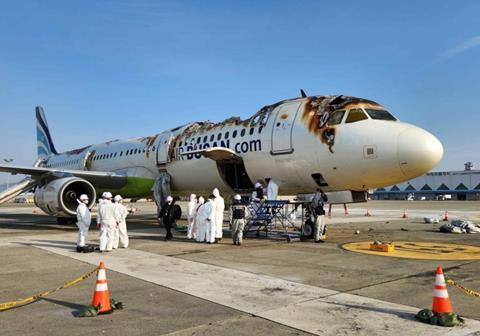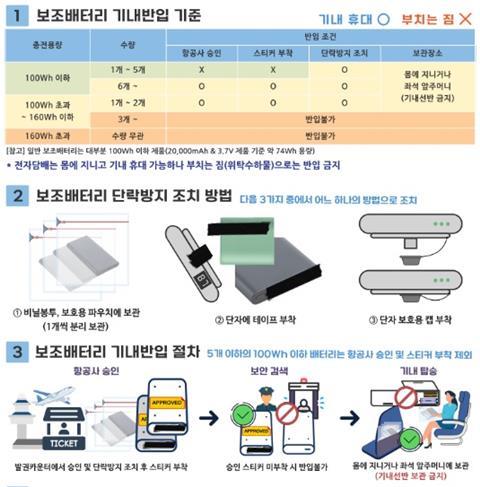Tighter safety management of lithium-ion batteries and electronic cigarettes on board aircraft is a “pre-emptive” response to allay public anxiety following the Air Busan Airbus A321 fire, the Korean government states.
Investigators of the 28 January fire at Gimhae airport have yet to establish conclusions and the Korean transport ministry says auxiliary batteries have “not been identified” as the cause to date.
But it has judged that measures are “necessary” given the public concern over fire risk, and plans to implement a guidance standard on 1 March.
This standard is intended to “reduce confusion” among travellers, it adds, and will take into account the views of specialists and airlines. A number of carriers, the ministry says, are already reinforcing battery safety policies.

The ministry will issue guidance on battery quantity, capacity, storage, and short-circuit prevention measures.
It adds that it will also apply the changes to electronic cigarettes in response to an “increasing trend” in in-flight fire accidents attributed to the devices – it cites one case of smoke generation in Korea but 90 in the USA.
Auxiliary batteries and electronic cigarettes are banned from checked baggage and “strict” regulations will be applied to those carried on board. A separate approval procedure will be necessary at check-in for carriage of auxiliary batteries in excess of power limits.

Short-circuit prevention steps, including use of insulting tape or protective storage, will be needed and security screening will be reinforced to ensure compliance with regulations.
Charging of auxiliary batteries will be prohibited and passengers will not be permitted to place them in overhead luggage bins.
“If the cause of the Air Busan fire is found to be auxiliary batteries, the ministry plans to review whether to further strengthen regulations, such as limiting the number of batteries carried on board, through joint discussions with ICAO,” the ministry adds.


























